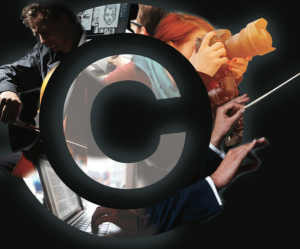If you’re streaming music and downloading movies, if you’re photocopying reference materials for a class project, perhaps even if you eat Girl Guide cookies, the current consultations about copyright in Canada may be of interest.
If you create original content for a living (and more than 700,000 Canadians do; that’s more people than working in the agriculture, forestry, fishing, mining, oil, gas and utilities sectors combined), then you should be involved.
Canada is currently holding consultations about copyright rules and regulations in this country, and those interested – or involved – can comment until the end of this month. It’s been five long years since the last major copyright legislation in this country, the 2012 Copyright Modernization Act, but much has changed in the interim.
So any comments you make now will feed into plans to reform the Copyright Board that oversees Canada’s Copyright Act. Among its regulatory functions, the Copyright Board sets how much users pay for copyrighted content such as music streaming, the public performance of music, educational copying and TV re-transmission.
Comments will also influence a required review of the Act itself this fall, as well as contribute to on-going efforts to keep up with the always rapid pace of technological developments, governmental agendas and consumers’ shopping habits that can impact copyright.
That pace seems to have outstripped the Board’s ability to keep up with the current copyright climate, according to a 2016 report by the Standing Senate Committee on Banking, Trade and Commerce called Copyright Board: A Rationale for Urgent Review. The report said plainly that the Board is “dated, dysfunctional and in dire need of reform.”

Canada is currently holding consultations about copyright rules and regulations in this country, and those interested – or involved – can comment until the end of this month. It’s been five long years since the last major copyright legislation in this country, the 2012 Copyright Modernization Act, but much has changed in the interim.
So there’s a need to streamline the Board’s decision-making process at the very least, just to help it keep up with the times.
When it comes to disputes over royalties paid to musicians whose work is distributed on commercial streaming music sites, for example, the Canadian Independent Music Association says delays at the Board have long been an economic roadblock.
“The speed at which technological change continues to take place requires equally timely decisions by the Copyright Board to foster growth and jobs in the industry,” said Association president Stuart Johnson, pointing to stats that show the Board takes some three to seven years, on average, to reach a decision about tariffs. “Unfortunately, Copyright Board decisions continue to be protracted and overdue, an impediment to industrial growth and jobs.”
And while a debate about the copyright fees associated with downloading the latest tune from a successful music icon may seem self-serving if not socially irrelevant, the costs associated with getting a university degree can have much greater significance.
So when changes to Canada’s Copyright Act are deemed among “the most damaging damaging adjustments to copyright laws recently seen in Western cultures”, well class, sit up and take notice!
That’s the denigrating description of Canada’s copyright legislation triggered by the addition of the word “education” to a list of exceptions contained in Canada’s Copyright Modernization Act of 2012—exceptions that seemed to empower educators to use copyrighted material without getting permission from – or making payments to – a rights holder
It’s a complex and emotional debate, in which the financial rights of the creator are often weighed against needs of the student/learner. Hemmed in by the ever-tightening budgets in schools and universities across the country, educators look for ways to reduce costs and still provide access to learning materials (like handing out photocopies of an important passage in a published book, rather than purchasing multiple copies of that book).

Canadian courts are being asked to answer these specific copyright questions even as Canadians are being asked to comment about copyright overall.
Is such access “fair dealing”? Should students in class pay as much as consumers on the open market to gain access to copyright-protected material like books, movies or other published content? Should they pay nothing at all? How can copyright be best managed so that a culture of innovation (both in school and in the marketplace) is supported and rewarded fairly?
Canadian courts are being asked to answer these specific copyright questions even as Canadians are being asked to comment about copyright overall.
There’s really no need to ask many Canadians how they feel about copyright and the so-called “notice-and-notice” regime: it’s blackmail, they say; it’s a shakedown.
It was put in place as part of a fight against online piracy, and the improper or illegal downloading of movies. Internet service providers (ISPs) can send a notice to one of their consumers that may threaten them with legal or financial action or both, based on a notice the ISP itself has received that the consumer has obtained copyright protected content without proper payment. The notice is supposed to increase awareness and discourage piracy, not to invent penalties and seek payments for an alleged violation that has yet to be proven in court.
Canadian consumers are rightly concerned about such threatening notices, and changes to the Copyright Act could help stop improper demands for payment with an approved policy or procedure that all companies involved must follow. Innovation, Science and Economic Development Canada, a government department charged with supporting the knowledge economy, manages the notice and notice system, and it too is looking to the copyright consultations for guidance and clarity.

The Girl Guides have commented on Canada’s copyright regime. Image from Girl Guides Calgary.
So, can cookies by copyrighted?
Well, that’s not the real reason why the Girl Guides of Canada is one of the groups that’s already contributed to the copyright consultation process.
The Girl Guides’ concern is about the possible extension of the length of time copyright may be held by the creator or rights holder, and their reasoning is that historical material about the organization and its activities would be unavailable to them for publicity purposes, for example, if the material is not allowed to go into the public domain. PD content can be used without paying copyright fees, but if the length of copyright is extended, it could be another 20 years’ more before legal access to particular content is so economically feasible.
Of course, many corporate rights holders (major book or music publishers) are thrilled with the idea of an extension, as it means more revenue for them for a longer period of time – often extending well beyond even the lifespan of the actual creator. It’s hoped that we won’t have to wait quite as long for the current consultation process to have a broadly-based and well-received impact on copyright in Canada.
The government says it will consider any reform options that would help address the Board’s challenges, and it is seeking outside ideas and opinions, submitted by email to CBconsultations@canada.ca, no later than September 29.
-30-



